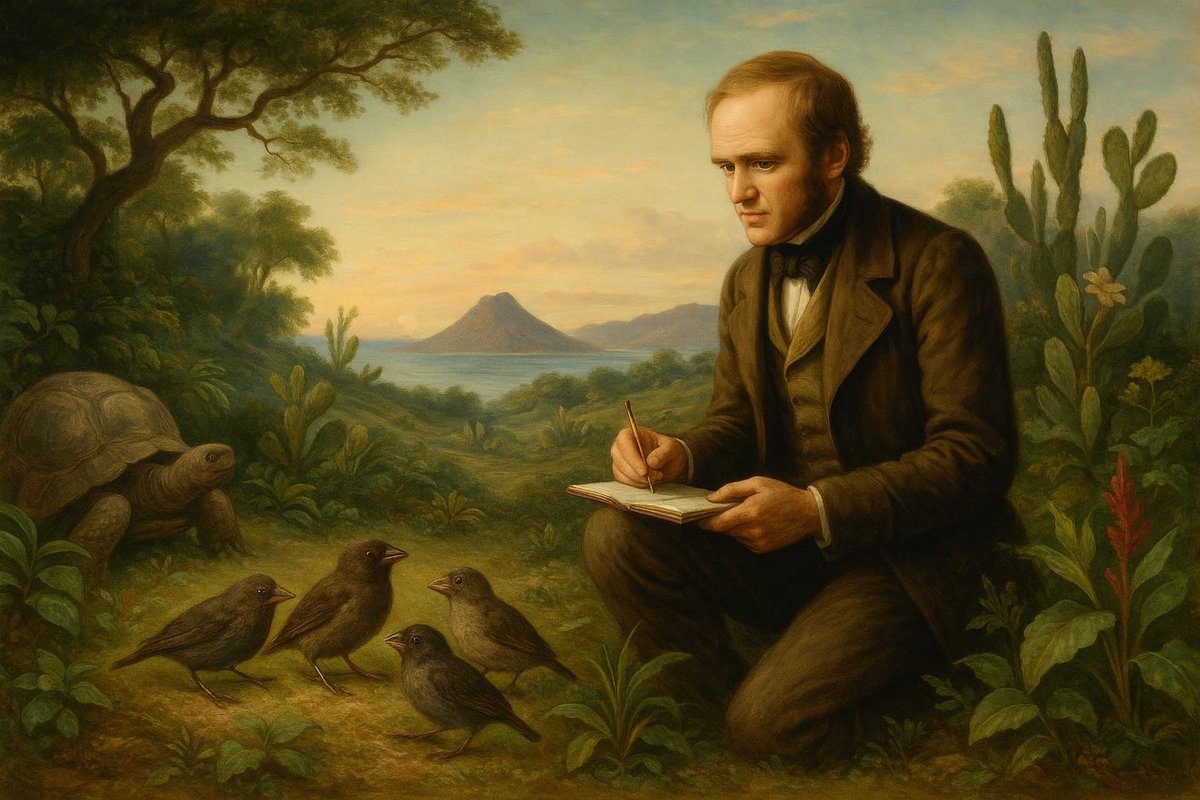
Questioning the Origin of Species
Why do some species thrive while others fade into obscurity? This question puzzled the scientific community of the 19th century. Before Charles Darwin’s remarkable insights, many believed in the immutability of species—an idea that species were created, and remained unchanged, since time immemorial. However, the increasing discovery of new species and fossils suggested otherwise. Interestingly, new ideas about life were emerging, setting the stage for a radical shift in understanding.
• Before Darwin, the prevailing thought was that species were static and unchanging.
• Fossils and new species discoveries suggested a more dynamic life history.
• The scientific community was ready for a new explanation.
As time went on, the accumulated evidence hinted at a more complex natural history, but a cohesive theory remained elusive. The clash between new scientific observations and traditional beliefs created a fertile ground for intellectual exploration. No wonder Darwin’s eventual theory would resonate so deeply.
The Galápagos: A Crucible of Insights
In 1835, aboard the HMS Beagle, a young Charles Darwin found himself in the Galápagos Islands, an archipelago teeming with unique life forms. Each island hosted different variations of similar species, sparking a realization in Darwin’s mind. Of course, these observations were not just about cataloging differences; they ignited a profound curiosity about the mechanisms driving such diversity.
• Darwin noted variations among finches on different islands, each adapted to its specific environment.
• The diversity of tortoises across the islands further illustrated species adaptation.
• These observations contradicted the belief in species immutability.
Darwin’s meticulous examination of flora and fauna on the islands provided crucial evidence that species were not fixed. Instead, they adapted to their environments over time, suggesting that life was far more dynamic and interconnected than previously thought. His Galápagos observations thus laid the groundwork for his groundbreaking theory.
The Breakthrough: Formulating the Theory
Upon returning to England, Darwin spent over two decades refining his theory. The result, ‘On the Origin of Species’, published in 1859, articulated the principle of natural selection: the idea that individuals with traits better suited to their environment had higher survival and reproductive success, gradually shaping species over generations.
• Natural selection explained the diversity and complexity of life.
• Darwin’s theory was both revolutionary and controversial, challenging existing beliefs.
• His work drew from a wide array of disciplines, including geology and ecology.
The publication was met with both acclaim and skepticism. It challenged the very fabric of societal and religious beliefs about creation and existence. Nonetheless, the compelling evidence Darwin presented helped cement the theory as a cornerstone of biological sciences.
Modern Relevance of Darwin’s Insights
Today, the theory of evolution by natural selection underpins modern biology. It explains phenomena ranging from antibiotic resistance in bacteria to the adaptive capabilities of animals facing climate change. The resilience of Darwin’s theory is a testament to its profound insights into the very fabric of life.
• Evolutionary principles guide conservation efforts and medical research.
• The theory helps us understand genetic variations and biodiversity preservation.
• Its influence extends beyond science, affecting philosophy, ethics, and society.
As much as the theory has evolved, its core principles remain a guiding light for scientific inquiry. Darwin’s legacy continues to inspire and challenge, urging us to explore the complexities of life with a curious and open mind.
In conclusion, Charles Darwin’s journey to the Galápagos and his subsequent formulation of the theory of evolution by natural selection is a monumental example of how keen observation, careful analysis, and intellectual courage can lead to transformative insights. His work not only altered the trajectory of science but also reshaped humanity’s understanding of its place in the natural world.
Fuel Someone Else’s Curiosity
If this exploration ignited your curiosity, consider sharing it with others. Whether it sparks a friendly debate or inspires someone to delve into the wonders of the natural world, spreading knowledge is one of the most powerful ways to fuel human progress. Your enthusiasm could be the catalyst for someone else’s voyage of discovery.

Leave a Reply